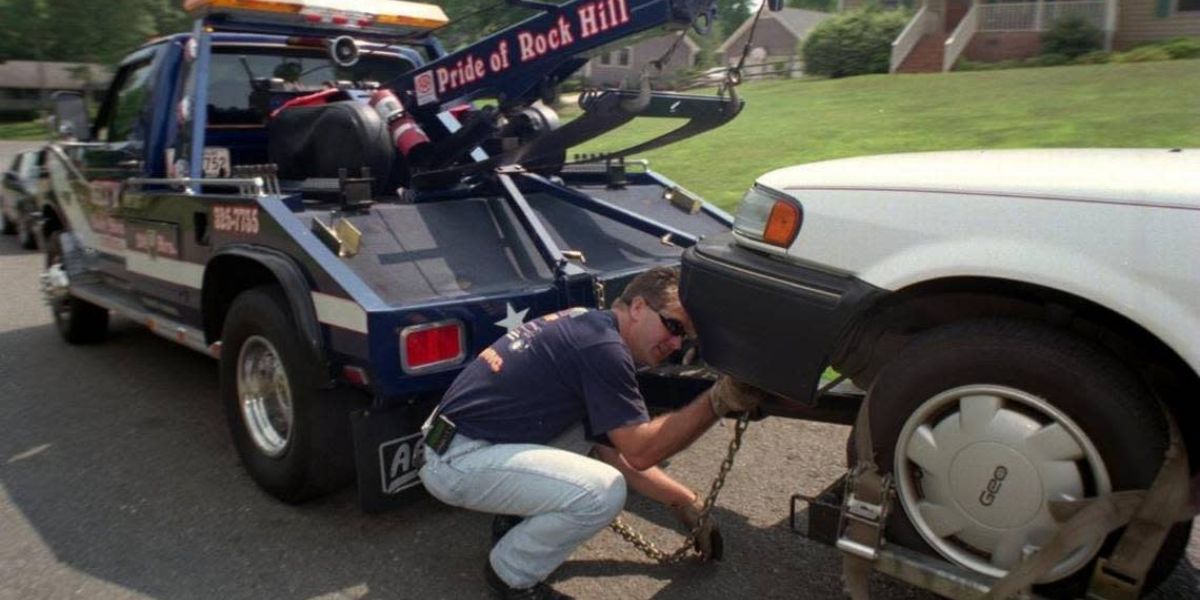In California, you might wonder: Can the police tow your car from private property? Maybe you’ve parked outside an apartment complex, in a store lot, or front of someone’s house, and you’re worried about whether your car could suddenly be gone.
Understanding the laws around towing can help you avoid fines, recover a towed vehicle quickly, and know your rights if you think your car was taken unfairly. Here’s what California law says.
When Can Police Tow Your Car?
California law allows police officers to tow vehicles under specific conditions, but they can’t tow just any car from private property at will. Generally, the California Vehicle Code (CVC) §22651 outlines situations where police can order a tow. These include:
- If the car is illegally parked and poses a safety hazard
- If the car is blocking access to driveways or fire hydrants
- If the car is reported stolen
- If the car has been involved in a crime or is evidence in an investigation
- If the car’s registration has expired for over six months
- If the driver has been arrested and the vehicle cannot be legally parked or left with another licensed driver
However, when the car is on private property, the rules get a bit more specific.
Police Powers on Private Property
Police do not have unlimited authority to tow cars from private property. For example, if you park your car in someone’s driveway or a business parking lot, police generally cannot tow it unless certain conditions are met.
Specifically, under California law, police can only tow from private property when:
- There’s a clear violation of the law — such as a vehicle blocking a driveway, fire lane, or fire hydrant.
- The property owner requests it — the owner or someone in lawful control (like a property manager) can authorize a tow.
- It’s an abandoned or junk vehicle — meaning the car appears inoperable or has been left on private property for an extended period, depending on local ordinances.
Police can only act without the property owner’s request when public safety or the law is being violated.
What About Private Tow Companies?
California law also governs private property towing under California Vehicle Code §22658. This section spells out when private property owners (like apartment complexes, shopping centers, or homeowners) can tow cars without police involvement.
Under CVC §22658, property owners can have a car towed if:
- Proper signs are posted at the entrance or parking area, warning drivers that unauthorized vehicles will be towed.
- The vehicle is parked in a marked fire lane or blocking access to emergency vehicles.
- The vehicle is blocking entrance or exit.
- The vehicle has been given notice (often a visible warning) and left for more than 96 hours.
In these cases, a tow company can remove the vehicle without police authorization, though they are required to notify the local police or sheriff’s department within one hour of towing.
What Happens After Your Car Is Towed?
If your car is towed — whether by police order or private property request — California law says the towing company must:
- Notify you where your car has been taken and how you can retrieve it.
- Provide the police department or sheriff’s office with the vehicle’s license plate number, description, and location.
- Allow you to recover the vehicle once you pay towing and storage fees.
You should call the local police non-emergency line if you believe your car was towed. They can tell you whether the car was towed, by whom, and where it is.
What Are Your Rights?
California gives vehicle owners several important protections when it comes to towing:
Right to know — You must be notified where your vehicle was taken.
Right to reclaim — You have the right to retrieve your car after paying the fees.
Right to challenge — If you believe the tow was unlawful, you can request a hearing to dispute the charges.
If you suspect your car was towed illegally — for example, if signs weren’t properly posted or you were not violating any rules — you can file a complaint with local authorities or even take legal action in small claims court to recover damages.
Avoiding Trouble: Tips for Drivers
To avoid getting your car towed on private property, follow these tips:
Never park in a fire lane, even temporarily.
Don’t block driveways or exits, even in residential neighborhoods.
Pay attention to posted signs in private lots — if it says “Customer Parking Only” or “Towing Enforced,” they mean it.
Don’t assume short-term parking is safe — even a few minutes could lead to a tow if the property owner calls.
Conclusion
California law strikes a balance between protecting property owners’ rights and preventing unfair towing practices. Police can only tow cars from private property under specific legal conditions — usually when public safety is involved or the property owner requests it. Meanwhile, private owners must follow strict rules, including signage and notice requirements, before towing a vehicle without police.
As a California driver, understanding these rules can help you avoid the frustration and expense of getting your car towed — and ensure that if it does happen, you know exactly what steps to take next.







Leave a Comment